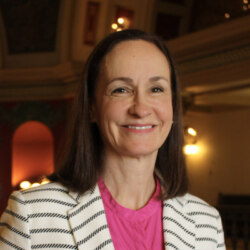Viewpoint: What Is So Special About Direct Primary Care?
What makes Direct Primary Care special is that it is subject to real market forces, not legislated contrivances, and that the patient is a real customer, causing excellence and value to prevail.
Direct Primary Care (DPC) is one type of Direct Patient Care medical practice, usually with a monthly membership fee for all primary care needs (broad range of general medical care), including contact with the doctor by text and email, and access outside of usual office hours.
I am a dermatologist, and I do Direct Pay specialty practice, which is a different kind of Direct Patient Care. I was skeptical about DPC at first, but I am now an enthusiastic supporter. In fact, my husband and I see a DPC doctor, and we have gifted each of our two adult daughters with a year of membership in a DPC practice, because we want the best medical care for them.
Things that are wrong with conventional medical practice (the insurance-based model) include: Visits are often rushed. There is difficulty getting a timely appointment. There is no access to your regular doctor for the majority of hours in the week. Doctors and non-physician providers often seem more focused on the computer than on the patient. Office time is often wasted with items that are not wanted or needed, in order to meet “quality” requirements. Too many diagnoses are made, because “higher complexity” must be documented to get a higher level of payment. It is easier to prescribe a medicine or order a test than to have a discussion. Fees are often a nasty surprise after the fact, even for those with “good insurance.” That is just a start. Good doctors are hampered in being their best and are rewarded for seeing patients quickly.
Direct primary care generally gets rid of all those problems. Wonderful service is common. The doctor is often less stressed, and he or she can be more thorough. Fees are predictable and reasonable. Even if the patient also has conventional insurance or is on a government program, the doctor can be a genuine advocate for the patient. Most importantly, in my view, doctor and patient are accountable to each other. It seems most of my physician friends hate thinking of patients as “customers,” but I love it, because I like to BE a customer, and I believe in the Golden Rule in practicing medicine. I am not demanding or unreasonable as a patient, but I am discriminating (in a good way), because I seek out quality, and I care about a reasonable fee. I APPRECIATE great care. In the rest of the (normal) economy, these are the kinds of market forces that reward excellence and value. The patient is also accountable to the doctor, when they pay the doctor directly, and must value the services enough to pay for them. The relationship is voluntary and mutually beneficial, or it does not continue. Direct primary care can’t make a bad doctor into a good doctor, but it can make it possible for good doctors to do their best.
The monthly bundled fee, however, is NOT what makes Direct Primary Care special. In fact, that is exactly the same as in capitated managed care (HMOs), and we know that HMOs have a downside. And, fee for service medicine is not bad, either, except for the massive intrusion of third party payers in between doctor and patient. The biggest difference is in who pays, and whether patients and doctors are free of outside interference. Ideally, the patient pays. If a family member or even an employer pays, it is still much more direct than payment through a giant insurance company or government program that can’t possibly care about that individual patient. The insurance concept was designed to make it possible to pay for unexpected expensive care, not to micromanage the practice of medicine. What makes Direct Primary Care special is that it is subject to real market forces, not legislated contrivances, and that the patient is a real customer, causing excellence and value to prevail.
Responsible legislators and government officials are looking for ways to improve health care quality and lower costs, and they have noticed that Direct Primary Care is doing that. However, they should understand that re-introducing a third party payer into the middle of the wonderful innovation of DPC would likely kill a wonderful thing, a delicate green shoot of genuine free market medicine, unless the funds are directly under the control of the patient. Even many DPC doctors don’t understand why DPC is so special, because the good ones often just want to practice medicine.
Healthcare Viewpoints is a monthly series featuring original columns from Montana healthcare leaders focused on addressing the challenges presented by our broken healthcare system. The opinions of guest authors do not necessarily represent the policy positions of the Frontier Institute.
